Why every game developer is mad right now, explained
Unity's new pricing scheme has brought developers together in a remarkable show of... well, you know.

Yesterday, game engine company Unity announced changes to its pricing plan that will see developers charged each time someone installs their game after certain revenue and installation thresholds are met. Unity has been around since 2005 and is one of the most popular platforms for game creation, used for big-budget titans like Genshin Impact as well as games like Vampire Survivors, Pokémon Go, Cuphead, Among Us, Subnautica, RimWorld, BattleTech (2018), and Hollow Knight.
The reaction to the change, which is set to take effect on January 1, 2024, has truly been something to behold: Everyone is mad. And I mean everyone, with that classic Gary Oldman emphasis:

The backlash has been nothing short of furious: Individual developers and indie studios of different sizes all came together with the sort of unity—ahem—that's usually only seen during international sporting events. Some developers predicted Unity would very quickly abandon the new pricing scheme (so far, it has not), others suggested parts of the plan—specifically the retroactive contract changes—might not even be legal, and many swore they'd walk away from the Unity engine completely.
Who's mad?
A small sampling of great anger
Innersloth (Among Us)
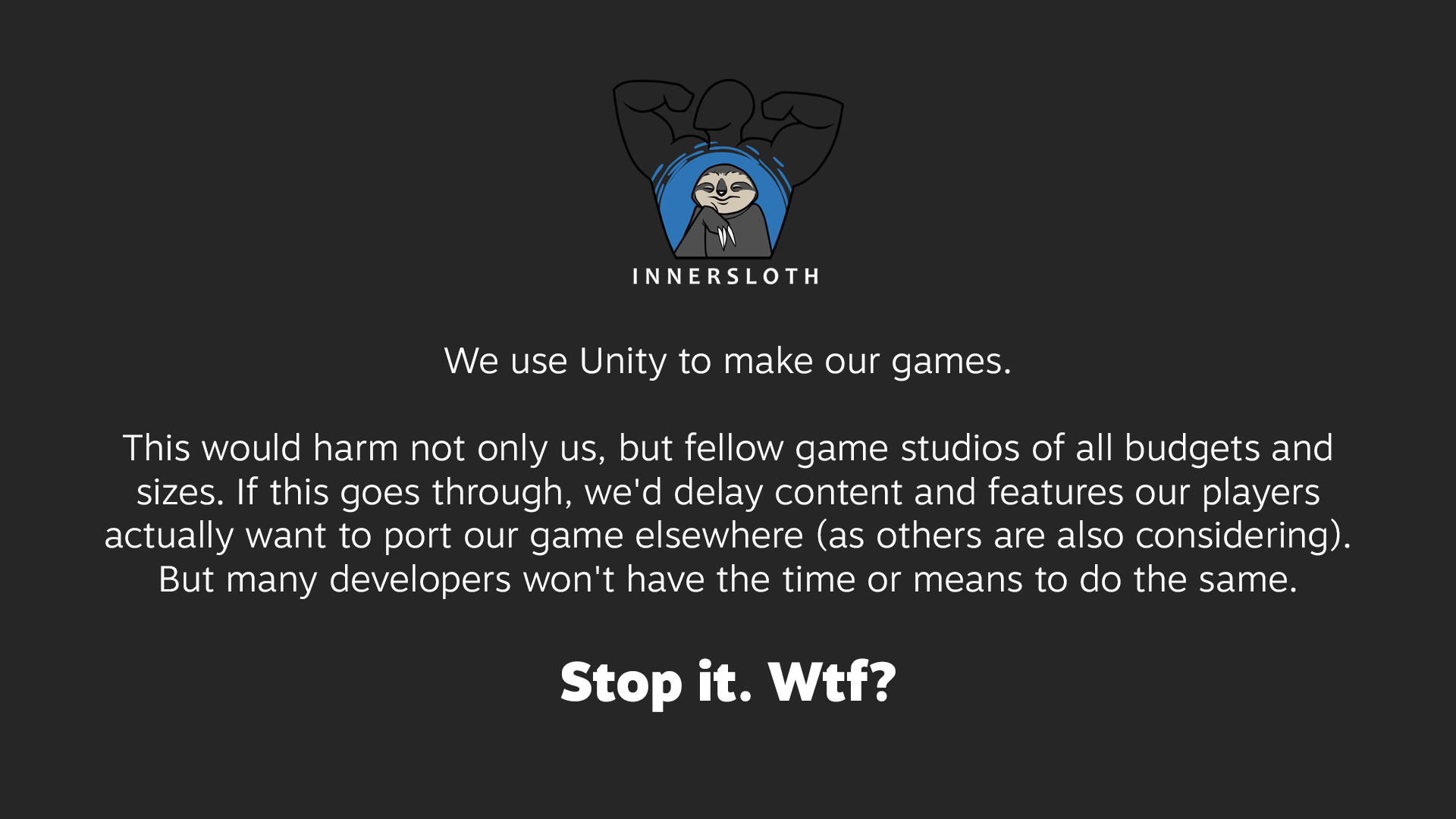
Aggro Crab (Another Crab's Treasure)
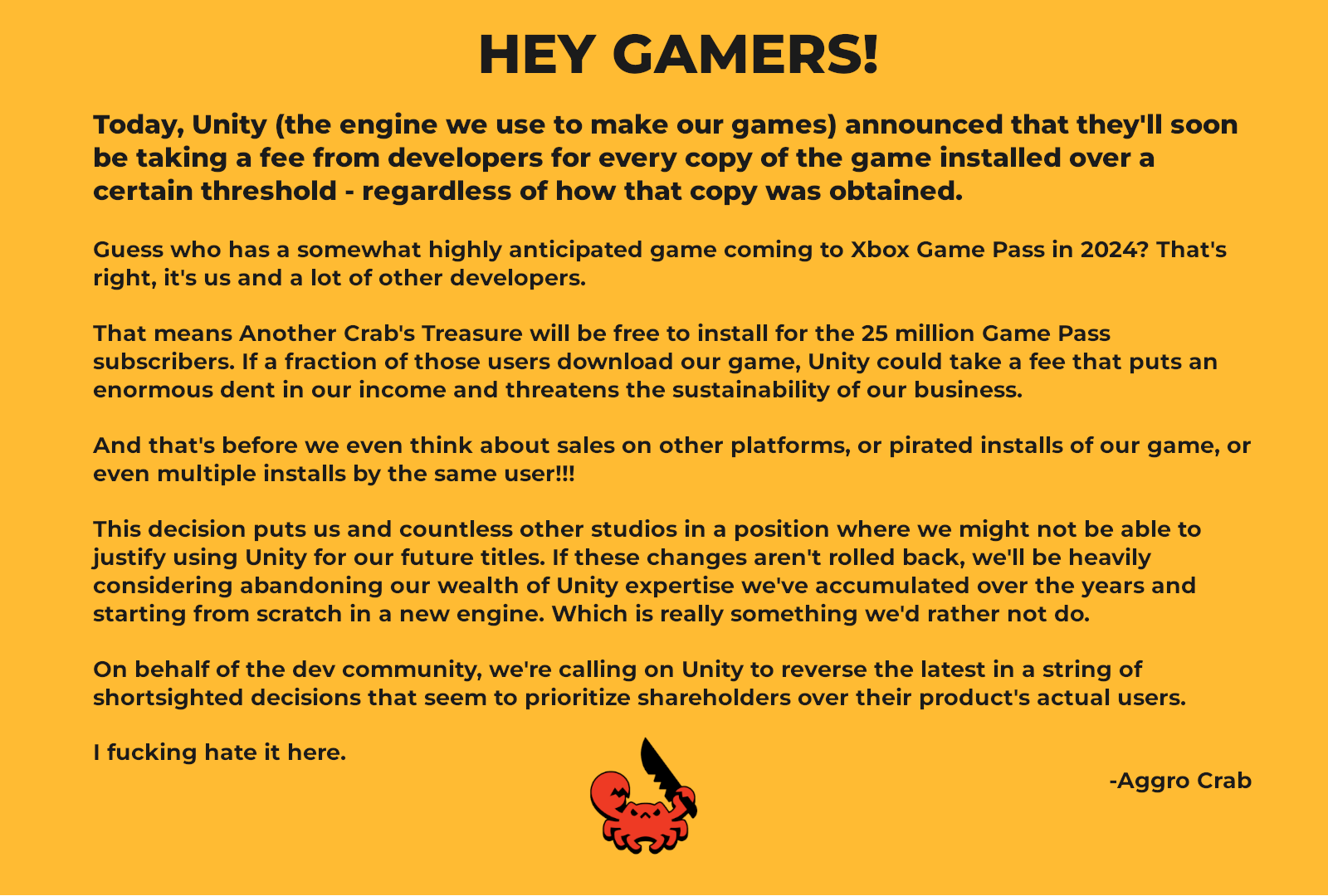
Massive Monster (Cult of the Lamb)
The biggest gaming news, reviews and hardware deals
Keep up to date with the most important stories and the best deals, as picked by the PC Gamer team.
Stop the stink @unity pic.twitter.com/ijme9wQ89mSeptember 13, 2023
Devolver Digital (indie-focused publisher)
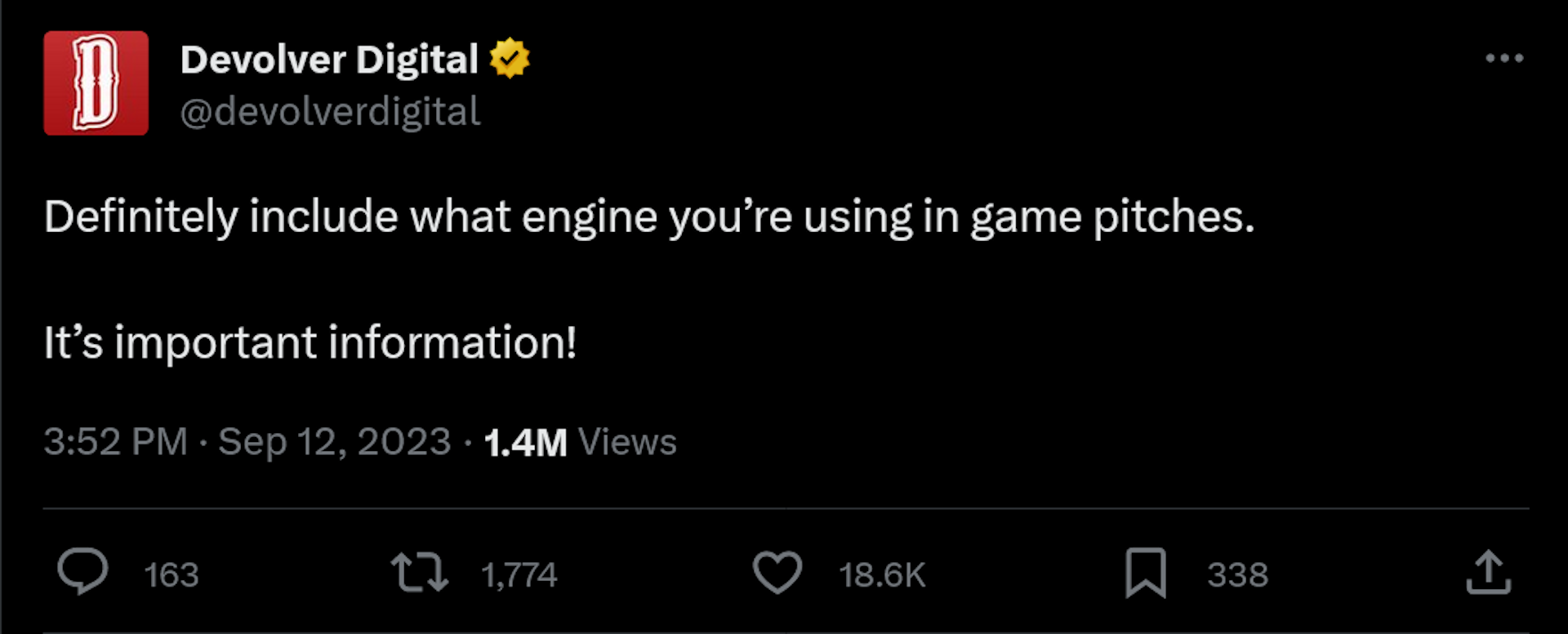
Landfall Games (Totally Accurate Battle Simulator)
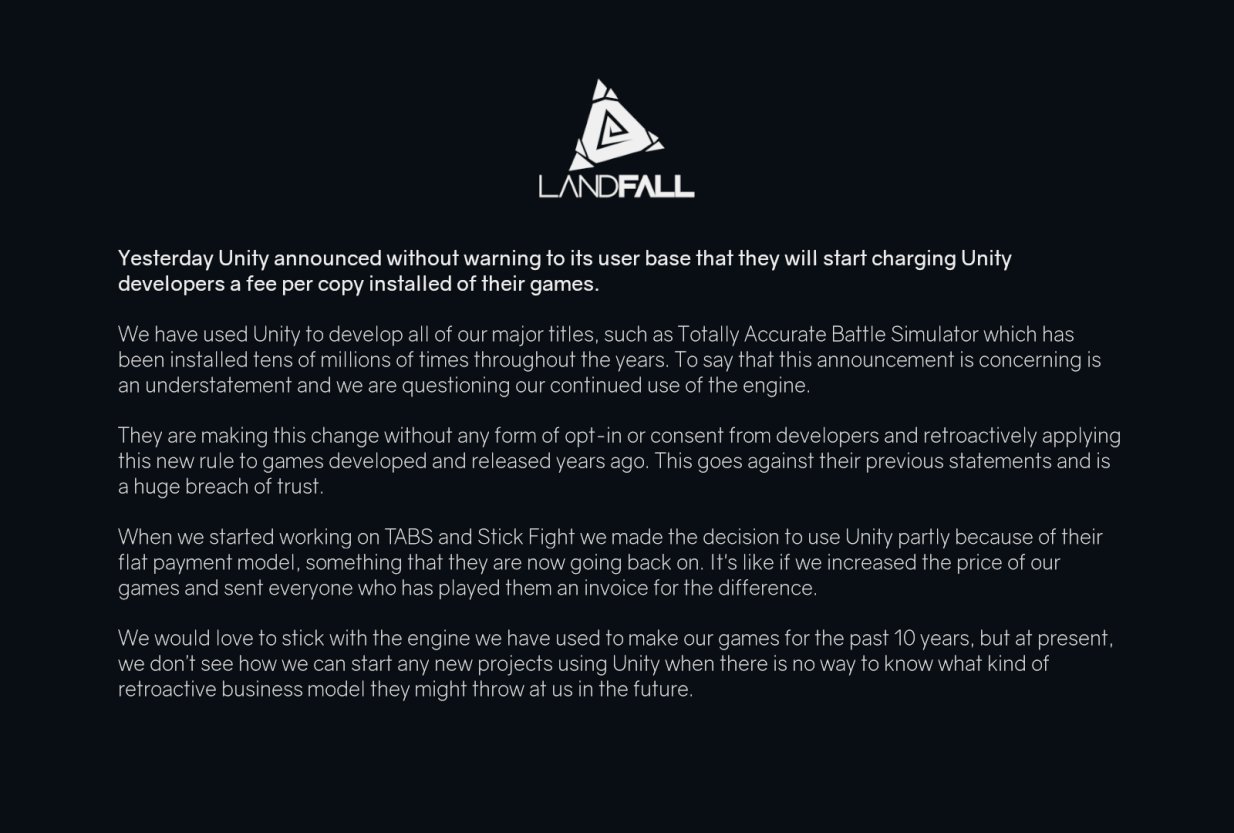
Garry Newman (Garry's Mod, Rust)
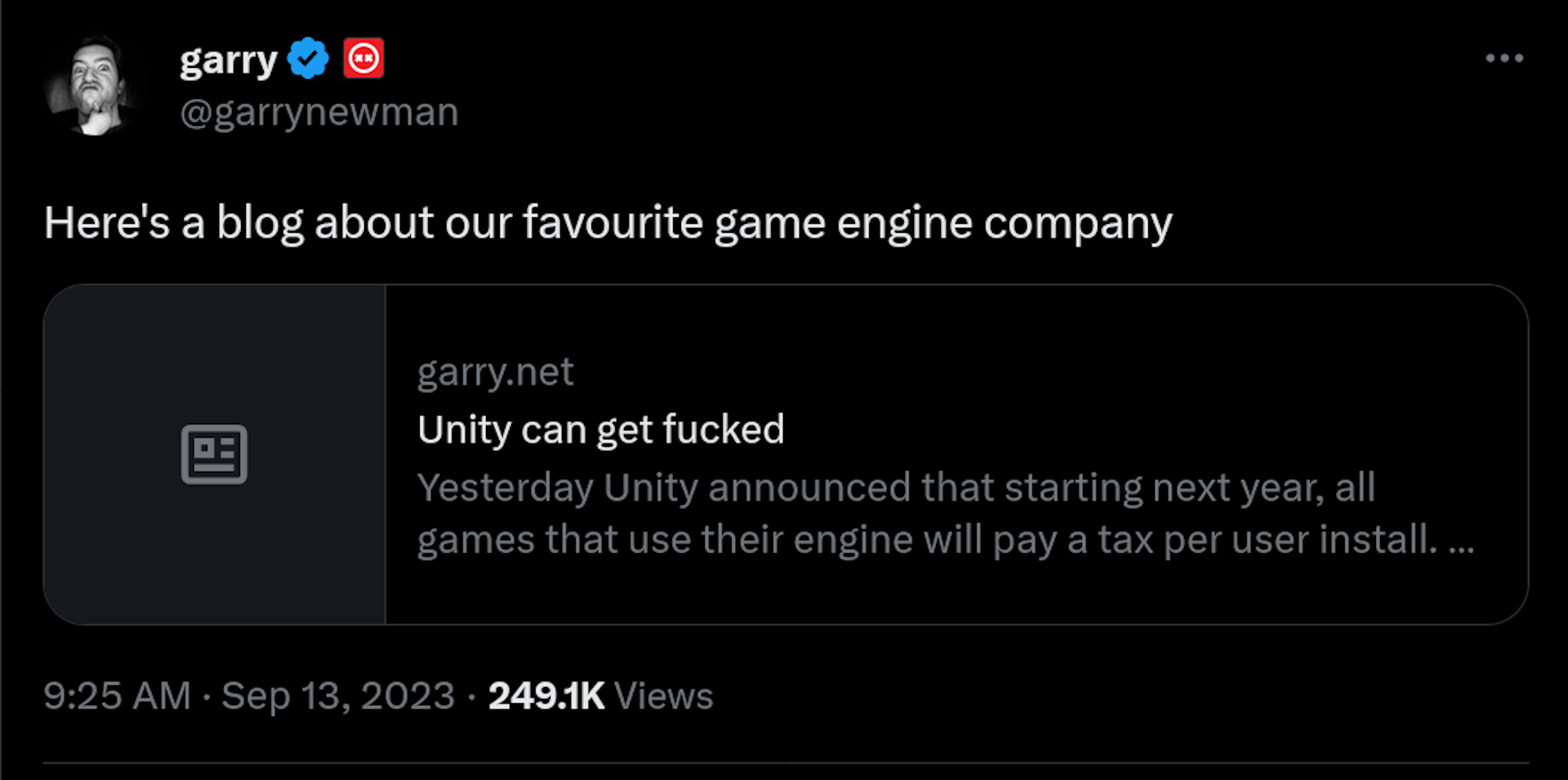
Mark Mayers (Desolus)
https://t.co/warKLmw7zB pic.twitter.com/Y2VqIzRJ2MSeptember 12, 2023
Xalavier Nelson Jr. (El Paso, Anywhere)
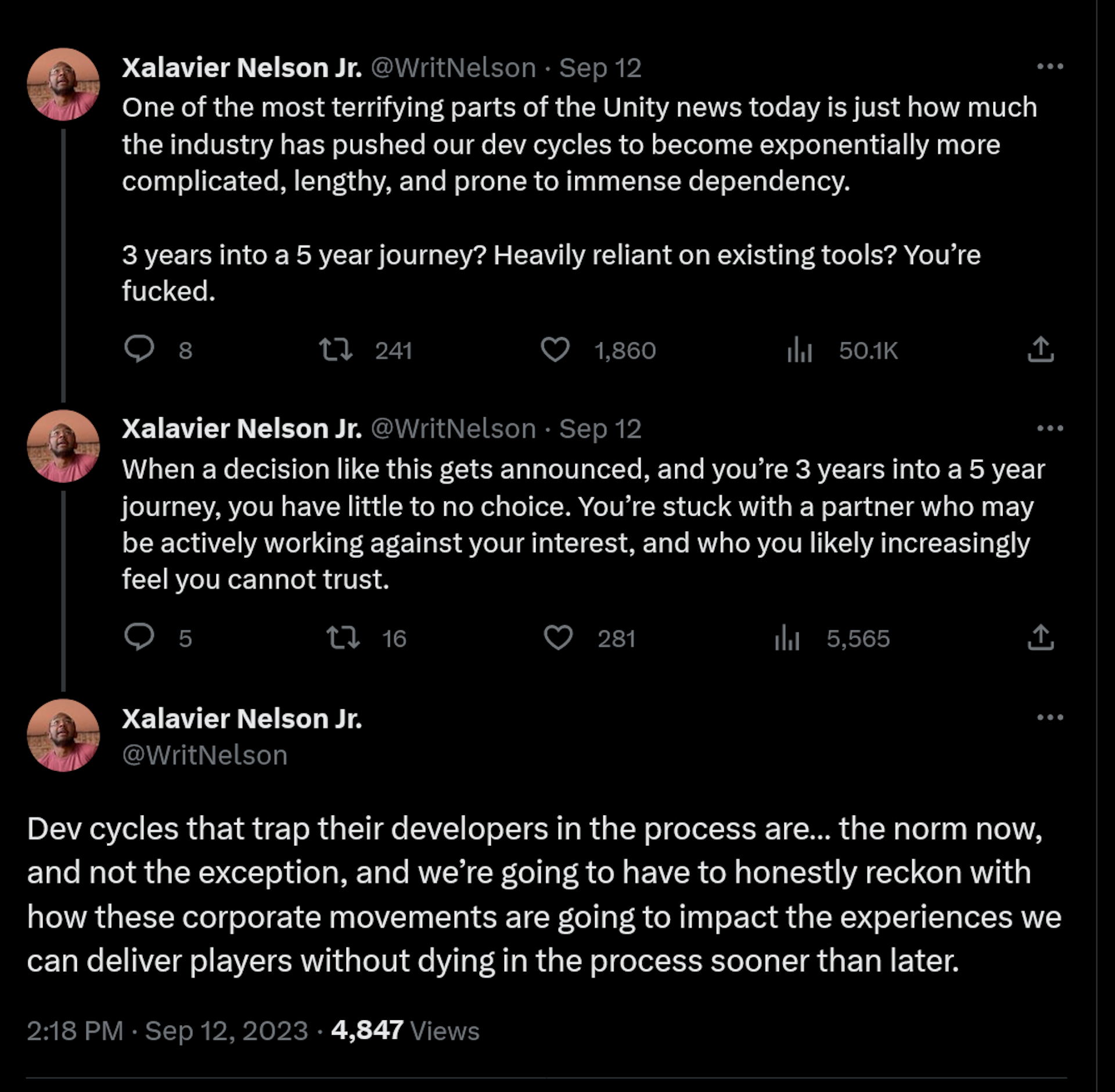
Cat Manning (Firaxis)
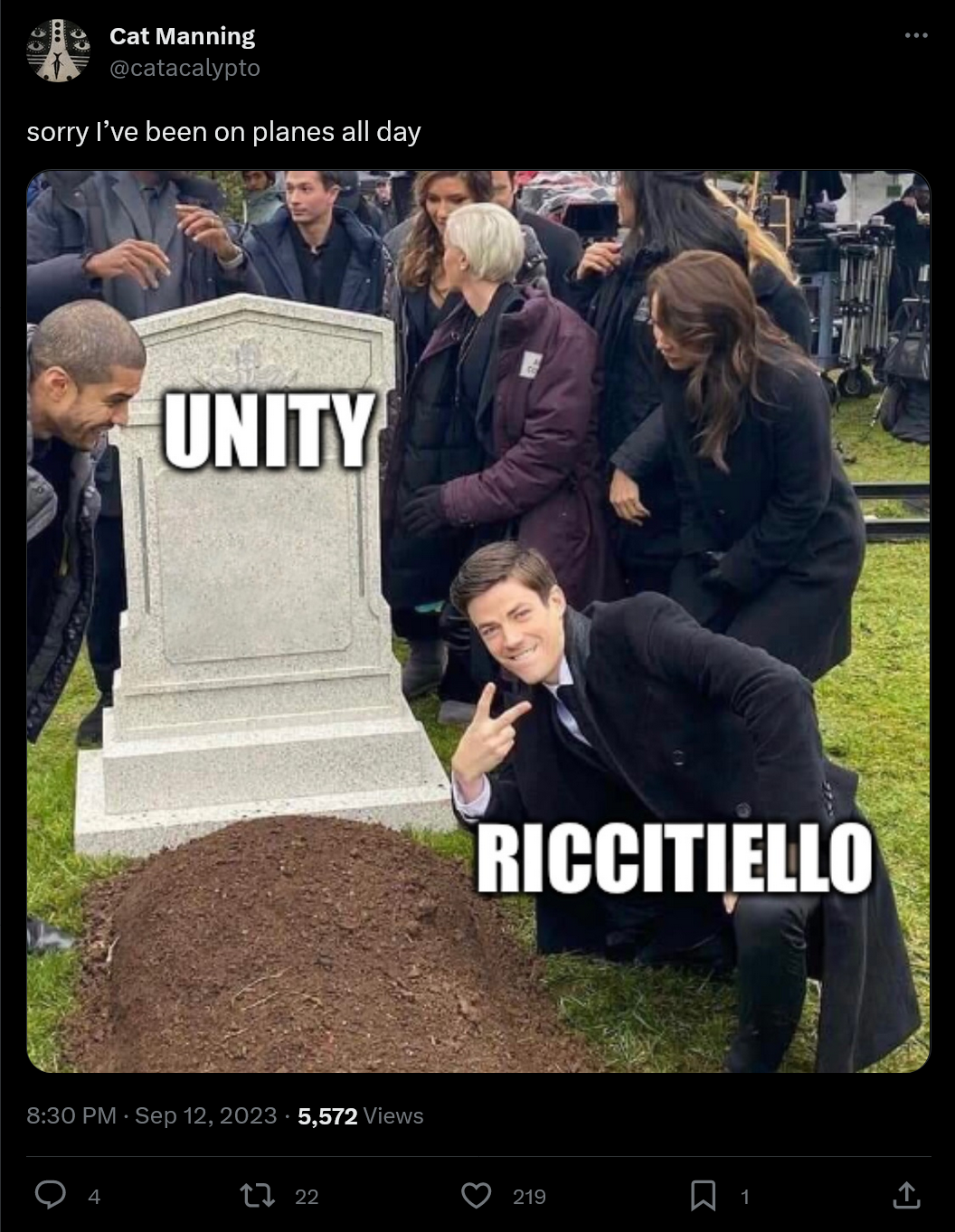
George Broussard (3D Realms co-founder)
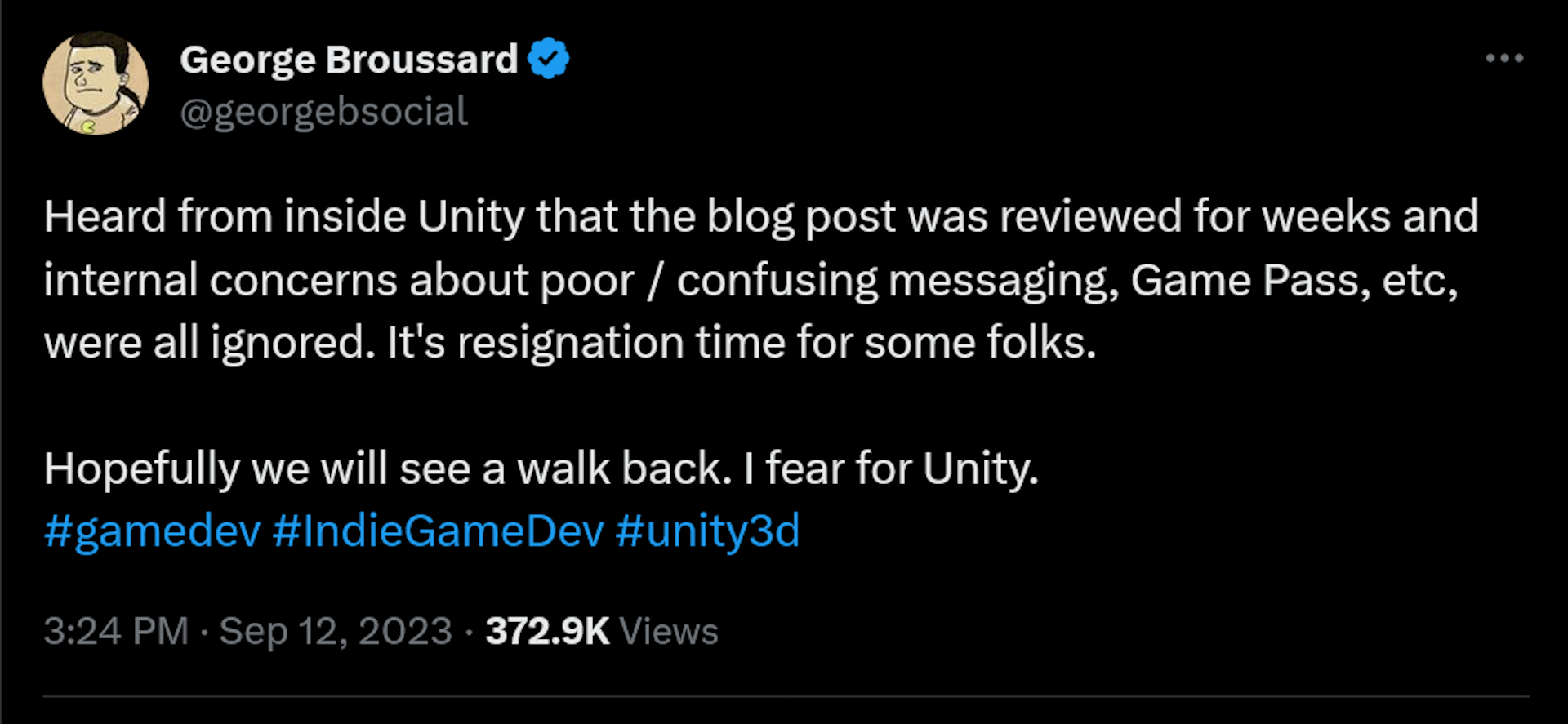
Mega Crit Games (Slay the Spire)
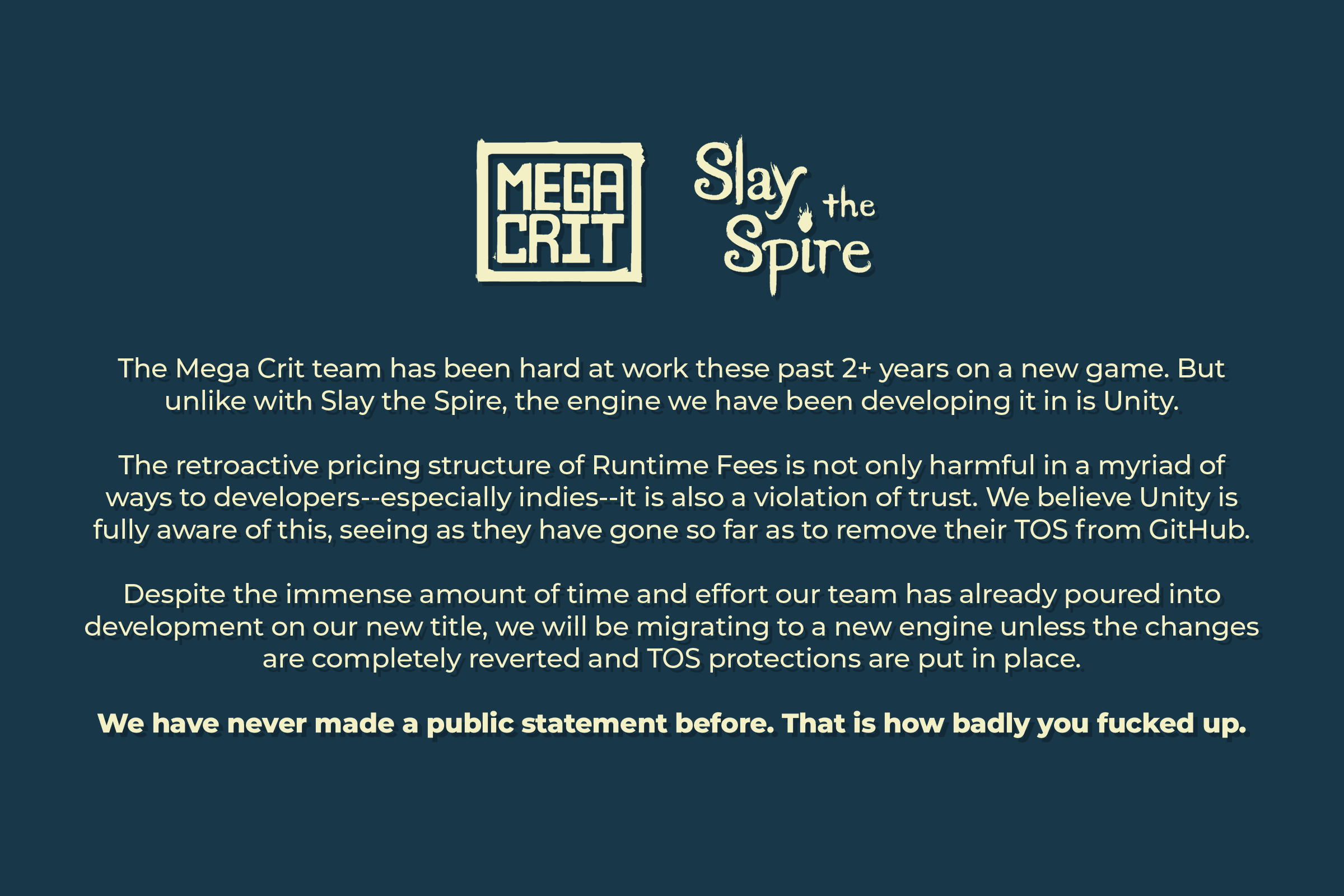
inXile Entertainment (Clockwork Revolution)
"hello yes we're here to collect money for a game you released 10 years ago" pic.twitter.com/bp8zWfhDRoSeptember 13, 2023
Joe Wintergreen, a designer and programmer whose recent credits include Weird West and Stray Gods, actually launched a website for developers who want to move from Unity to Unreal, called ughiguessiwanttomovefromunitytounreal.com.
Why are they mad?
The uproar is primarily driven by two factors: Unity is attaching a flat per-install fees to games that use its engine, and it's arbitrarily scrapping existing deals and making the changes retroactive.
The policy announced yesterday will see a "Runtime Fee" charged to games that surpass certain installation and revenue thresholds. For Unity Personal, the free engine that many beginning and small indie developers use, those thresholds are $200,000 earned over the previous 12 months, and 200,000 installs; one those marks are met, developers will be charged 20 cents every time someone installs their game.
That sounds like a lot of money, but as we noted yesterday, there are a lot of other factors that could come into play and cause real headaches for devs. "Install bombing," in which angry users spoof multiple installs in order to rack up charges against a target developer, is a risk under this scheme, as is simple piracy; the policy also calls into question how indie developers will want to deal with things like charity bundles and Game Pass, which can bring their games to very large audiences without the attendant revenue.
They've made it clear it's not safe to work with this engine.
Aaron San Fillipo, FlippFly
Another big issue is that Unity has made this change retroactive: It supersedes any existing agreements with Unity that developers may have made, and it applies to games that were released even before any of this happened. The revenue threshold will be based on sales after January 1, 2024, when the new pricing system takes effect, but sales that occurred before that date will count toward the install threshold. Aaron San Fillipo of Whisker Squadron developer FlippFly said that willingness to trash existing deals for new cash grabs "[makes] it clear it’s not safe to work with this engine."
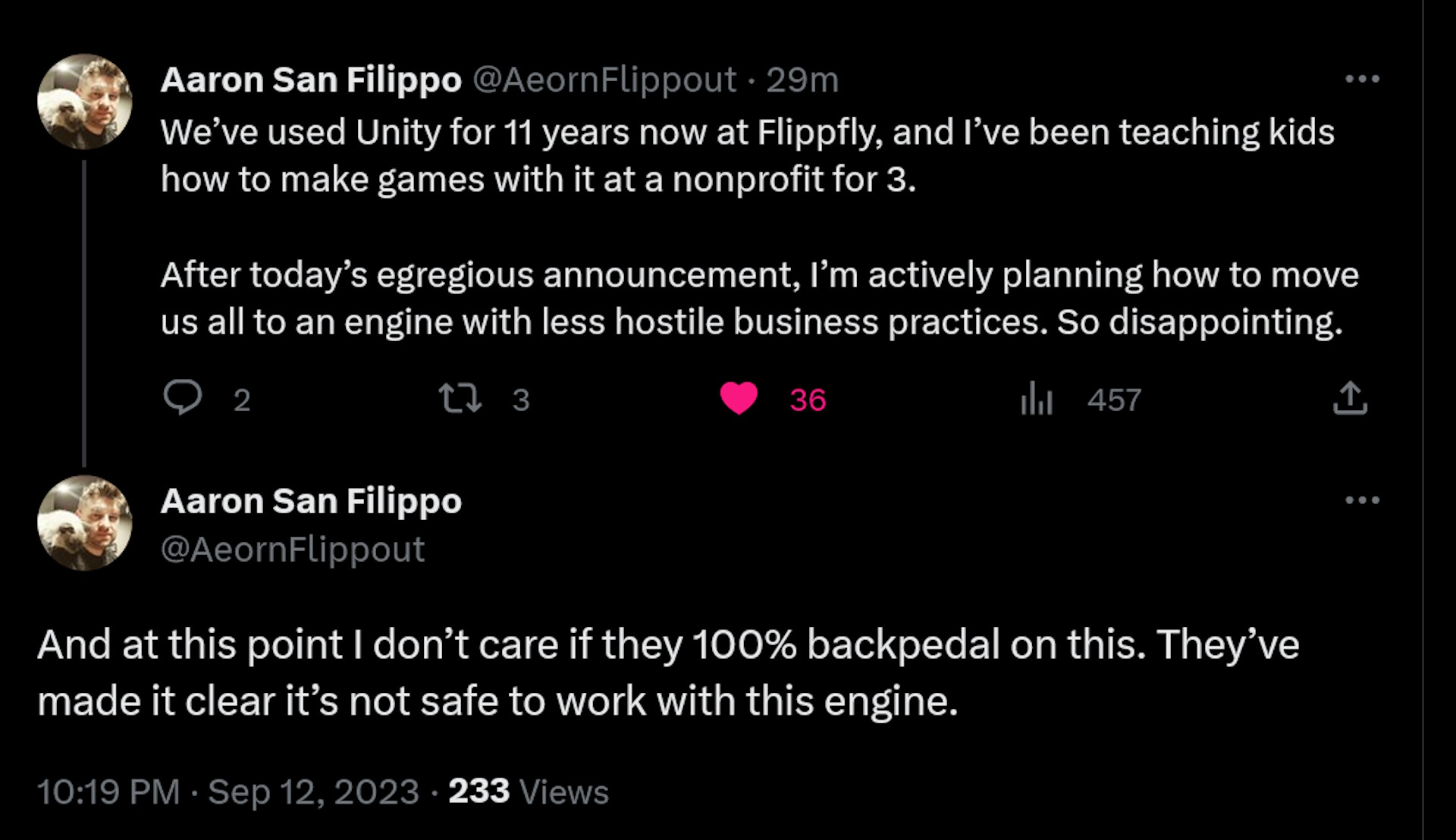
Developers also criticized Unity for not answering some important questions about how this scheme would work, or for issuing statements that conflicted others. Details about the changes beyond the public statement weren't provided, and conflicting clarifications that came out after that statement only served to make matters worse. After Unity told Axios that developers will be charged for reinstalls of their games, for instance, a Unity employee said on Twitter that they would not be. Unity eventually nailed that point down in an ongoing thread on its forums, confirming that developers will be charged again if someone who owns their game reinstalls it or changes their hardware.
That thread is not smoothing the waters—if anything, it's making matters worse. Among other things, it says Unity will use its own "proprietary data model" to determine how many times a game has been installed, that early access releases, beta versions, and demos will count toward the installation threshold, that games that have already been out for years (and thus have likely passed at least one threshold) will be on the hook for the fee, and that for developers who feel they've been fraudulently or unfairly charged, "we will make available a process for them to submit their concerns to our fraud compliance team." To put it mildly, that's not a statement that inspires great confidence.
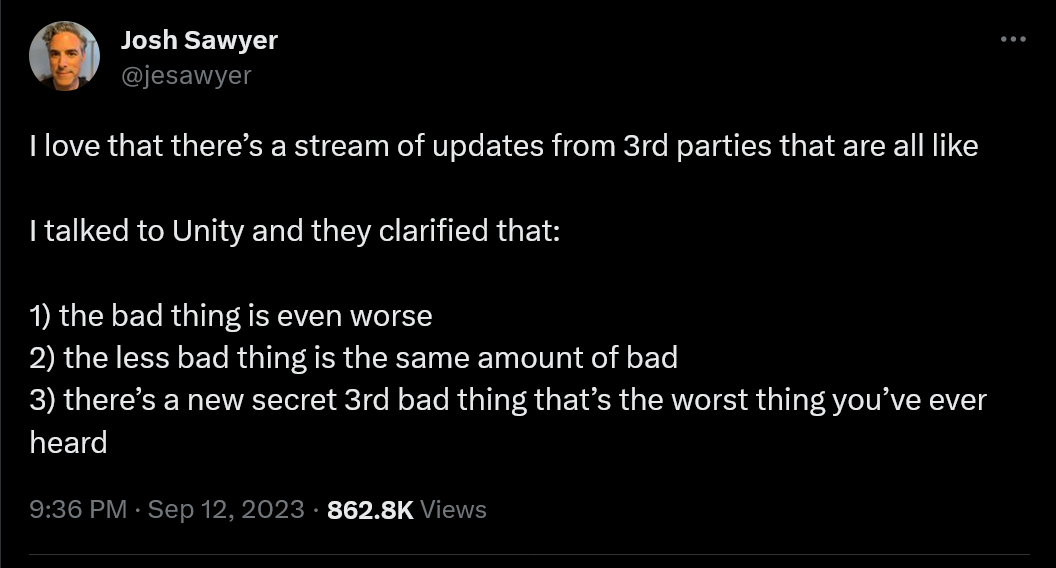
As bad as all this is, there's a good likelihood that it will get worse. Indie game developers are at the forefront of this controversy, but Unity is also used in major hit games including Genshin Impact, Pokémon Go, and Hearthstone. How likely is it that miHoYo, Niantic, and Blizzard will agree to fork over a percentage of their revenues (a much smaller percentage than Unity Personal users, yes, but money is money) based on a retroactively-applied contract rewrite?
This applies equally to Unity's reassurance that game developers won't be charged Runtime Fees for games on Game Pass because it's going to charge Microsoft directly: I respect the hustle but I think it's very unlikely Microsoft (or any other distributor) is going to start forking over money just because you said so.
Why is Unity doing this?
Unity presumably had some idea that people wouldn't like this, so why do it?
Some say CEO John Riccitiello is just a habitual rake-stepper: He is, after all, the guy who said developers who don't monetize their games are "f—ing idiots."
Industry veteran Simon Carless believes it's a straightforward business decision: Unity wants a "semi-trackable" way to more effectively monetize its biggest customers, most of whom are mobile games, and it's willing to sacrifice a relatively small part of its business—game engine revenues as a whole only account for about 23% of Unity's revenues, and the PC/console segment is just a small part of that—to make it happen. Unity also offers credits that can be applied toward the Runtime Fee charges for users of its Levelplay service, but that's only available on mobile devices—PC developers can't take advantage.
And even if the change doesn't impact the majority of small developers on Unity, Carless—like many others—said it's not just about the money involved.
"Ultimately, this is about trust. As a game creator, you have a deep relationship with your engine provider, because you're locked into it," he wrote on his GameDiscoverCo newsletter. "Perhaps most small and medium PC & console devs won't be affected significantly by these biz model changes—and we suspect this might be true. But the fact you could be, in unexpected ways that are untrackable or uncontrollable by you—is mentally untenable."
For now, this is how things stand: Unity has pulled the rug out from thousands of developers who use Unity and those developers are looking to get out. There may yet be a walkback, but the longer this drags out, the less likely that appears. Instead, it looks like Unity has made a decision and it's going to ride it out, good or bad—and game devs are going to have to make some tough decisions about what they're going to do as a result.
Update: In a tweet posted shortly after this story went live, Unity changed direction yet again, saying that developers will not have to pay for reinstalls, that trials and demos will not be subject to the fees (although early access releases still will be), and that web and streaming games will not count for fees either. The thread on Unity's forums has also been updated to reflect these changes.
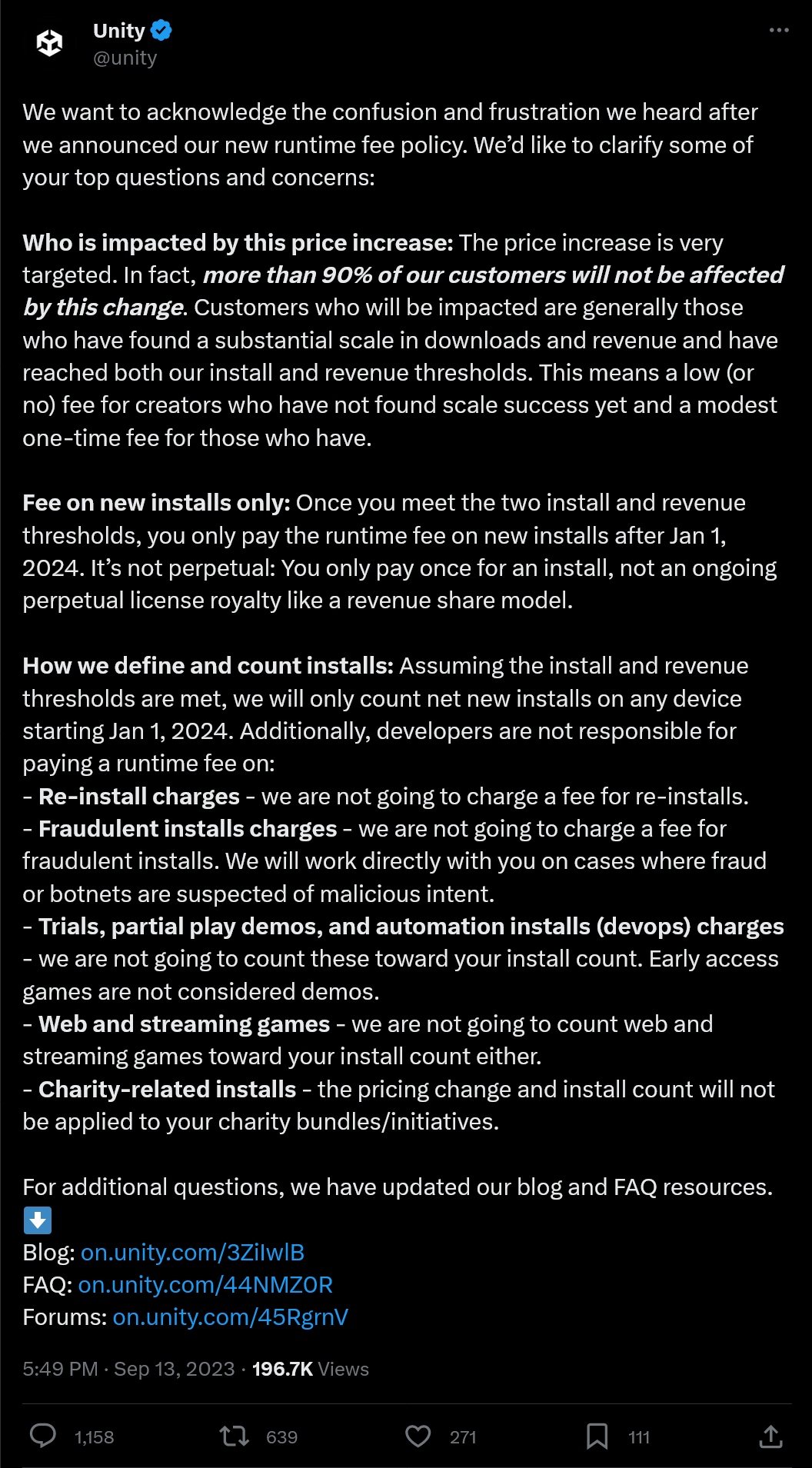
It's fair to say that this latest turnaround has not made things better.
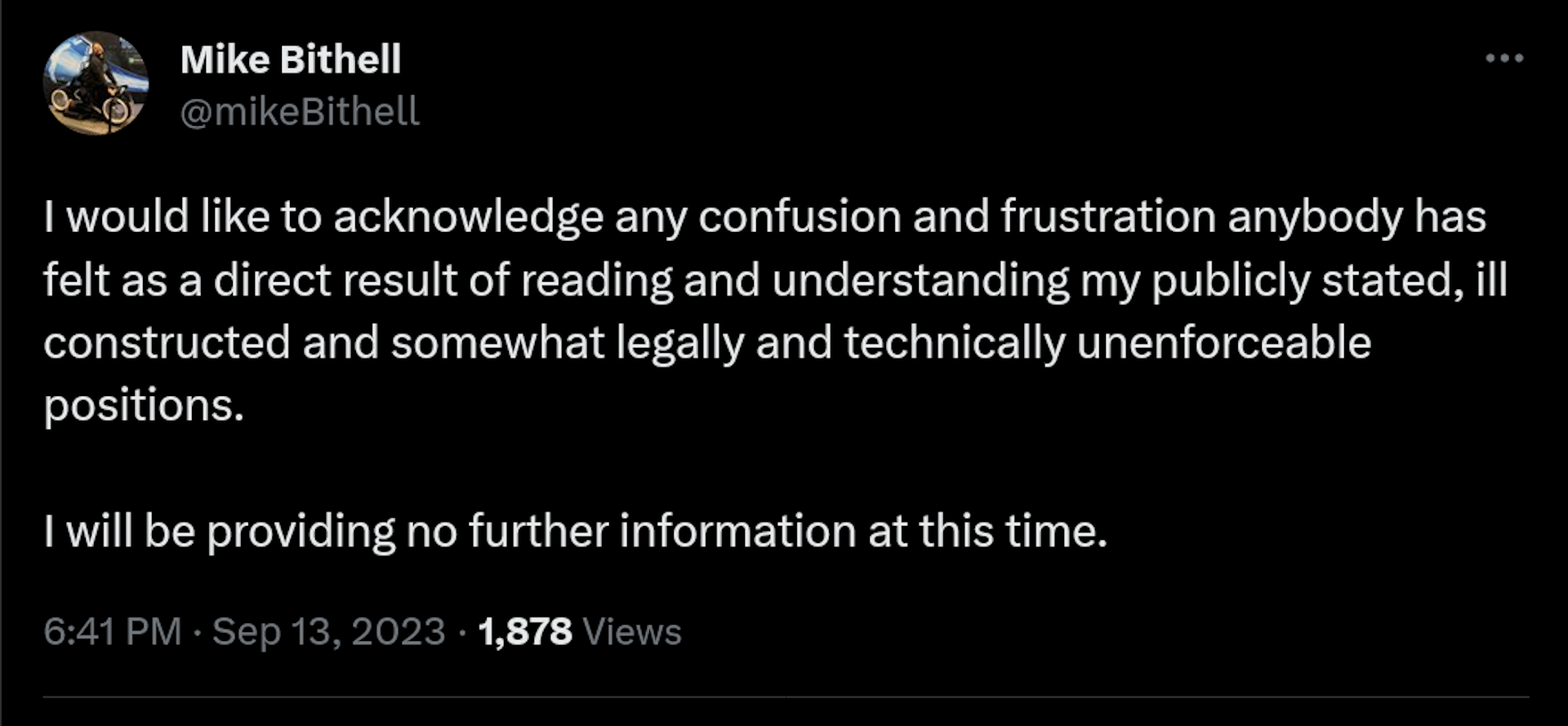

Andy has been gaming on PCs from the very beginning, starting as a youngster with text adventures and primitive action games on a cassette-based TRS80. From there he graduated to the glory days of Sierra Online adventures and Microprose sims, ran a local BBS, learned how to build PCs, and developed a longstanding love of RPGs, immersive sims, and shooters. He began writing videogame news in 2007 for The Escapist and somehow managed to avoid getting fired until 2014, when he joined the storied ranks of PC Gamer. He covers all aspects of the industry, from new game announcements and patch notes to legal disputes, Twitch beefs, esports, and Henry Cavill. Lots of Henry Cavill.

